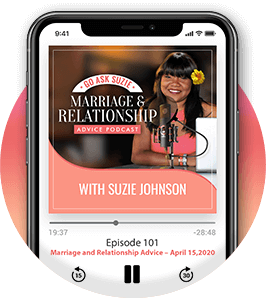![]() Thank you so much for this site, the resources on it, and for the audio materials you offer. I recently purchased “Forgiving Infidelity and Releasing Pain” and already, it’s helping me to learn how to be calm and patient, and to come from a place of love (even when all I would usually feel around this issue is anger, hurt and pain).
Thank you so much for this site, the resources on it, and for the audio materials you offer. I recently purchased “Forgiving Infidelity and Releasing Pain” and already, it’s helping me to learn how to be calm and patient, and to come from a place of love (even when all I would usually feel around this issue is anger, hurt and pain).
Although my partner and I identify ourselves as an emotionally monogamous couple, we have recreational sex with others (we are swingers). He has been a “swinger” for many years, and I was basically new to it when we started dating. Early in the relationship, we set the boundary that we would only play with others together, meaning we both had to be present to participate in any recreational sex. During the first year of our relationship, he broke our agreement. He went to a party, was only “going to dance and be social,” and ended up having sex with another woman. Since that occasion, he hasn’t always been honest with me about where he was/is going and with whom, but I believe that since then, he hasn’t actually broken our agreement or cheated sexually in any way.
I’m still having problems letting go of that original hurt because each time I “catch” him not being fully honest or omitting information, it feels like that old wound is ripped open again. I really do believe he isn’t cheating. I also know he isn’t built to be monogamous, and I accept that. Do you think you could help me identify some tools to remind myself, in the moment or after the moment (when I’m back at my house in the city I live in, and he’s 100 miles away in his), that our love, trust and bond is independent of this play and doesn’t mean he wants to go outside of our agreement or relationship anymore? For some reason, this is when it’s the most troublesome for me.
![]() Thank you for the opportunity to serve. Let me say right off the bat that I really admire you for having the courage to ask this question — especially because of the nontraditional nature of your relationship — because I really think it highlights and brings to focus the fact that deception plays a much bigger role in the pain and hurt we experience… than extramarital sex actually does. So again, thank you for asking this question because I believe it will go on to be very helpful for a lot of people.
Thank you for the opportunity to serve. Let me say right off the bat that I really admire you for having the courage to ask this question — especially because of the nontraditional nature of your relationship — because I really think it highlights and brings to focus the fact that deception plays a much bigger role in the pain and hurt we experience… than extramarital sex actually does. So again, thank you for asking this question because I believe it will go on to be very helpful for a lot of people.
So let’s talk about what’s going on with you.
The first thing I want to talk about is what’s really causing your pain. It’s not the extramarital sex but really the feeling that you can’t trust your partner, or that he’s not being totally honest with you that creates your anxiety, your fear and your worry. So let’s talk a little bit about why his deceptiveness hurts you so much.
Why does his deceptiveness hurt?
On the surface, the answer appears to be pretty simple. Deception hurts because it takes away our certainty and our ability to predict the other person’s behavior. But if you look deeper, there’s something else there as well. Deception also hurts because it sends a message that we’re being excluded from the other person’s inner world. Think about it this way, when he’s being deceptive (omitting information, being evasive, etc.), what is he really communicating to you? Well, for one, he’s saying there are certain actions, choices and experiences that he wants to exclude you from. What that implies is that: (1) he doesn’t think it’s safe to include you, and (2) he doesn’t think he should have to include you. Either way, his deceptive tactics create barriers between you and his world.
Therein lies the conundrum.
Because while sex is physical, intimacy isn’t. Intimacy (IN-TO-ME-SEE) is about granting access to your inner world; therefore, deception is a way of preventing (sometimes even sabotaging) intimacy in a relationship. So… I would imagine that what really hurts is the fact that you’re not being given full access to his inner world and the fact that you’re not being “allowed” to truly know him. In a way, it’s like being granted partial access to heaven — the times when you’re locked out make you feel like you’re in hell.
A couple of questions come to mind:
- Does he have a compulsively secretive personality?
- Or does he simply not feel safe to be honest with you because he knows that deep down, you’re really not “okay” with this lifestyle?
These are things for you to think about. And as you do, I want you to also consider the following:
People deceive for one of two reasons: to hide weaknesses, or to gain advantages. They also keep secrets for the same two reasons. And it’s not just people who do this — governments, corporations and organizations do the same. We keep secrets, evade, hide, cover, camouflage, misdirect, mislead, omit and lie… when we want to hide a weakness or hope to gain an advantage.
For example:
- People exaggerate on their resumes to give the impression of being higher qualified (gain an advantage).
- People lie on their resumes to cover gaps in employment (hide a weakness).
Sometimes, people do the above at the same time, like in the case of professional cyclist Lance Armstrong, who was recently stripped of his racing titles.

He employed deceptive tactics to gain an advantage (he used performance-enhancing drugs), and then he lied to cover his weakness (the need to cheat to win).
The point here is this…
When you know the motive behind other people’s deception, it gives you better insight into why they do the things they do, which in turn can lessen the hurts those things cause.
In your case, I think it might be a good idea to have a conversation with your partner about what makes him decide to be deceptive at times. For example, you could say something like this:
“I read a blog the other day that said, people usually are deceptive for one of two reasons: to hide a weakness or to gain an advantage. And when I look back over the times that I’ve been deceptive… told white lies… I can see that’s been the case for me. I’m wondering if that theory holds true for you as well?”
Notice…
I’m not using accusatory words. I’m not singling him out, and I’m not excluding myself from the scenario. It’s very important that you do the same, and let me tell you why. If you accuse people, back them into a corner, shame them, criticize them or make them feel singled out about being deceptive, then chances are greater that they will feel compelled to lie to “hide” those feelings of weakness.
And there’s another reason.
We have all been deceptive at certain times in our own lives. So, it’s important that when we try to encourage others to be honest with us (especially about their own dishonesty), we shouldn’t exclude ourselves from the conversation because then, we’re also being dishonest. Does that make sense?
Here’s the bottom line.
You want to encourage him to be more honest with you, to include you, to open up and share more of his inner world with you. I get this. Here’s what I also need you to get: people will only be as honest with you as they feel it’s safe to be. This means if he feels it’s not safe to tell you everything (for example, you might get your feelings hurt, you might lose respect for him, you might judge him or you might leave him), then chances are they would rather be dishonest.
So now I have a question for you…
In the midnight of your soul, can you really say that it’s safe for him to be totally honest with you? Really think about that because oftentimes, people say they want the truth, but when they get the truth, they: (1) can’t handle it, or (2) crucify those who told it to them.
So, often deceptive strategies are unwittingly being employed for our own protection! I know that’s not exactly logical, and yet it’s how a lot of people rationalize lying to those they love.
Here’s what I want you to take from all this.
My theory is that you got hurt earlier in the relationship when he crossed those boundaries. Maybe this hurt was never fully healed… and he knows this. And to spare you further hurt, he continues to lie.
If this is the case, what can you do?
My suggestions:
- Be willing to truly heal the hurt. I mean, completely let it go (it’s done anyway) and allow yourself to begin again.
- As you forgive him, don’t exclude yourself from the impulse of deception. This means that as you forgive him for his deceptions, don’t overlook your own.
- Be more honest with yourself about your true priorities, values and desires.
This is perhaps the most important piece of advice I can give you because it’s my concern that you may feel like you have comprised or sacrificed your own values and desires just to be in a relationship with him.
Ask yourself: If you could have a sexually and emotionally exclusive relationship with him or a non-exclusive one, which would you truly prefer?
Your answer will tell you a lot, because here’s what I believe: if a person feels they need to sacrifice inner values to be with someone, he or she usually ends up carrying around feelings of loss, burden and anxiety. And since monogamy (exclusivity) is often one of the highest values in our culture… the real question is, how high of a value is it really for you?
Now here’s another thing I want you to consider.
Even if monogamy isn’t your highest priority (meaning, you value being sexually non-exclusive above sexual exclusivity), then you’ve got to realize that just the fact that you felt moved to write these questions… means that honesty is nevertheless a high value for you. And just because you’re in a non-exclusive relationship doesn’t mean you have to be in a dishonest one as well. Do you get what I mean?
Final thoughts.
It’s important that we not confuse “non-exclusivity” with “dishonesty”. No matter what type of relationship you’re in, exclusive or not, honesty is the key ingredient. And there are plenty of couples in non-exclusive relationships that are totally honest with each other. In fact, it’s my opinion that honesty plays a far more important role in non-exclusive relationships than in any other kind. Why? Because with permission comes great responsibility. And that type of responsibility must be handled honestly. Am I saying that those who are compulsively deceptive or secretive are NOT good candidates for non-exclusive relationships? Yes, that’s exactly what I’m saying.
Until we speak again…
Remember… Love Wins!

































